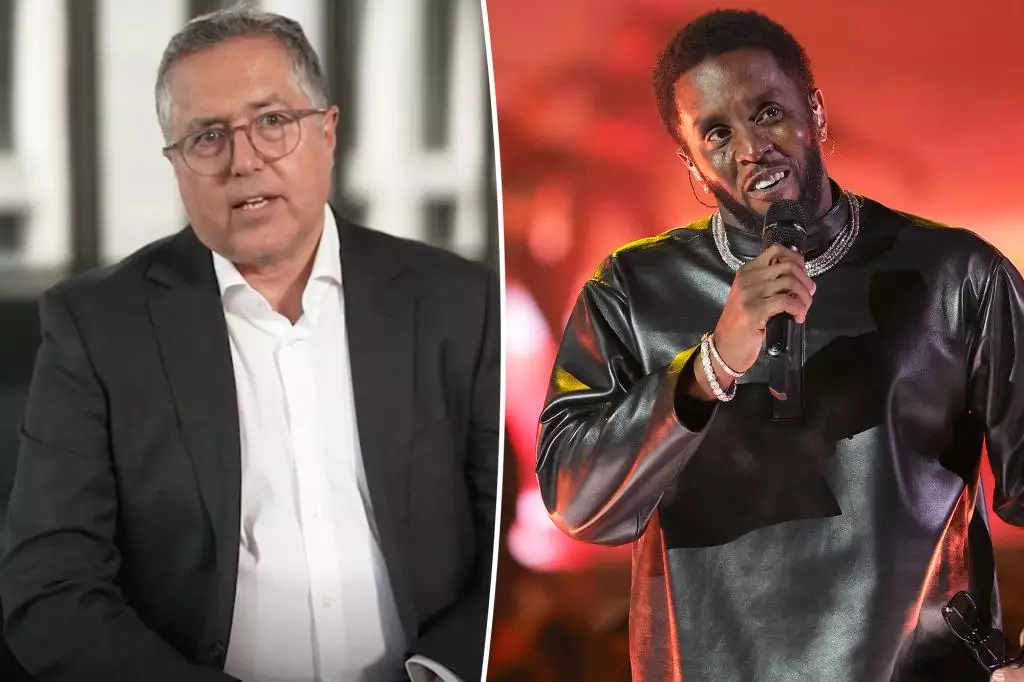The recent developments in the life of Sean “Diddy” Combs have stirred significant public interest and media speculation, particularly in relation to his homes being raided by federal authorities. The allegations against Combs are not only alarming but paint a picture of a lifestyle riddled with excess, manipulation, and potential criminal activity. This article delves deeper into the unfolding narrative, shedding light on various aspects of this high-profile case.
The raids on Combs’ properties in Miami and Los Angeles have been a focal point in recent news cycles. According to reports, federal agents seized not only firearms but also a shocking number of bottles—approximately 1,000—of baby oil and lubricant. The implications of such findings suggest a deeper, more disturbing element tied to Combs’ social gatherings, often referred to as “freak-offs.” These events, which have been described by some as extravagant sex parties, are alleged to involve drugs and sexual misconduct, raising critical questions about consent and the ethics of such indulgences.
A prominent attorney representing Combs, Marc Agnifilo, attempted to downplay the situation by questioning the rationale behind possessing thousands of lubrication bottles. He suggested that such quantities could be attributed to bulk purchasing habits, a defense that, while seemingly plausible, does little to mitigate the bizarre circumstances surrounding the case. The insistence on believing that a celebrity might need an overwhelming stock of lubricants and oils seems disingenuous, especially when the federal government’s assertions cannot be easily dismissed.
The more concerning aspect of this narrative relates to the assertions made by U.S. Attorney Damian Williams. According to Williams, Combs allegedly orchestrated events where participants, particularly women, were drugged and filmed without their knowledge or consent. These claims indicate afar more sinister dimension to the gatherings and cast a shadow over Combs’ public persona as an influential cultural figure.
The allegations extend beyond mere excess; they confront significant issues surrounding power dynamics, consent, and sexual violence. The description of events as “freak-offs” denotes an attempt to trivialize what may, in fact, be serious violations of personal rights and dignity. The exploitation of vulnerable individuals under the guise of luxury and grandeur highlights troubling themes prevalent in celebrity circles, where the line between consensual pleasure and coercion is often blurred.
Combs’ case is emblematic of broader issues facing celebrities who often find themselves ensnared by their own notoriety. The lavish lifestyle that accompanies fame can lead individuals to take reckless actions, often believing they are untouchable. However, as this situation illustrates, the consequences of such behaviors can be severe and far-reaching.
The federal charges against Combs—racketeering conspiracy, sex trafficking, and transportation related to prostitution—are serious and carry severe legal repercussions. As the judicial process unfolds, the scrutiny of Combs’ lifestyle and actions is expected to intensify. This situation raises broader societal questions about accountability, especially for those in positions of power who exploit their influence for personal gain.
In a world increasingly obsessed with celebrity, the case against Combs serves as an opportunity to critically examine the lavish lifestyles often celebrated in popular culture. It also prompts discussions on the responsibility of public figures to act ethically and the impact their actions have on society at large.
While Combs pleads not guilty and awaits trial, the spotlight remains fixed on him, along with a public eager for accountability in the face of alleged abuses of power. The intersection of celebrity culture and morality thus becomes a broader social conversation—one that challenges us to reconsider how we idolize certain figures and the potential ramifications of their actions.
As this case progresses, it serves as a sobering reminder that the actions of those in the limelight can often conceal darker realities, demanding ethical vigilance from both fans and society as a whole.

